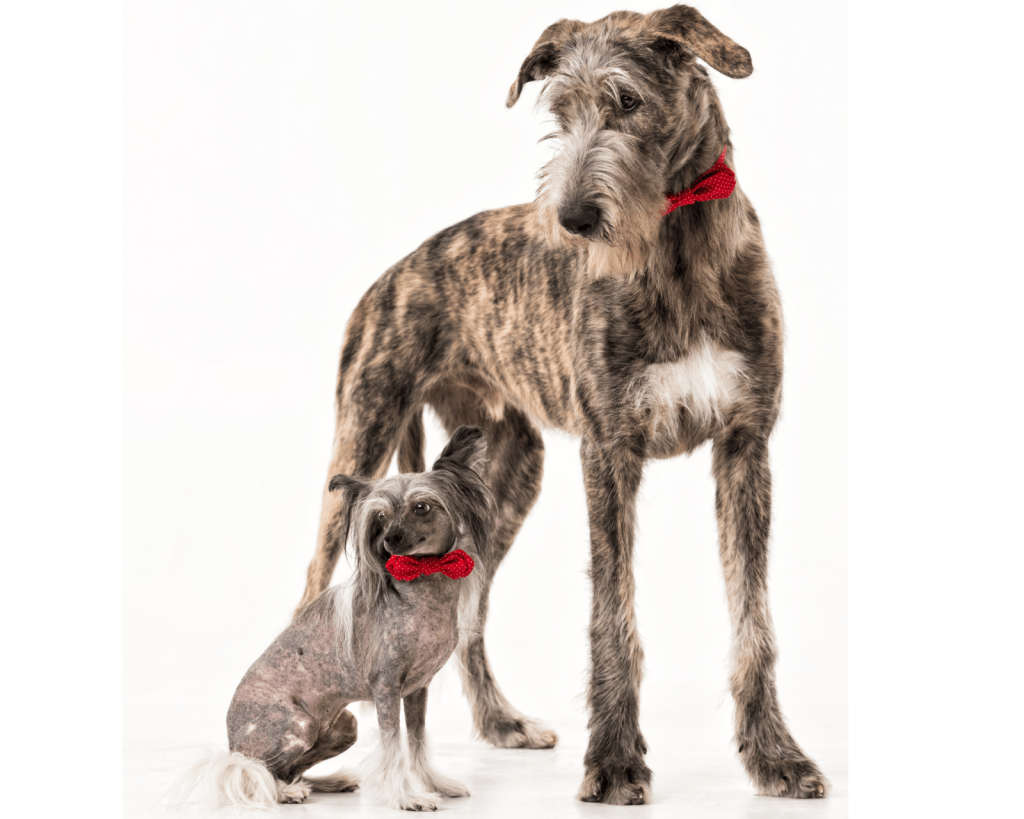
In the battle of small dogs vs. big dogs, take it from former big-dog snobs: small dogs win. We’ve been owned by many dogs, both large and little, and while ALL canines are amazing, we’re here to tell you small dogs rock.
But, of course, a few misguided souls disagree.
Google, for example. Just try typing “are small dogs smart…” into its search bar, and Google behaves like that pushy guy at the gym and finishes your sentence for you, suggesting you ask instead: “Are small dogs dumb?”
Well, no. No, Google, they’re not.
A Brief History of Big Dog Ego
For hundreds of years, the world has labeled small dogs as some lesser type of canine. An old Southern saying captures the sentiment perfectly: “Run with the big dogs, or stay on the porch.” The phrase is intended to keep lesser humans out of the way of their tougher and more successful counterparts. It’s generally whipped out in conversations involving fast cars, big tractors, or complex business negotiations.
In those ten short words, we encounter “The Problem With Small Dogs” in the battle of big dog versus small dog: a stereotyped, inaccurate image of miniature dog breeds seen as pretty useless, unless you’re one of those types who wants to sip lemonade and rock on the porch.
It’s time Google, and the rest of the world, sheds that stereotype and understands the many advantages of small dogs.
While all the positives to small dog ownership are impossible to list, here are ten big reasons small dogs are a great choice:
1. Small Dogs Are Dogs
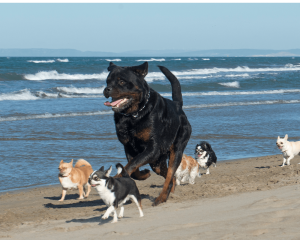
To say small dogs are dogs” seems ridiculous, in that, well, everyone KNOWS they are technically “dogs.” But too many of us just don’t really believe it; our egos get in the way. For decades, I was that person who smiled tolerantly at people walking fluff balls at the end of the leash, wondering why they bothered with such fragile, high-strung creatures. In my mind, in choosing between big dog vs. small dog, there was no contest.
My vision of “dog” was shaped through decades of living with gorgeous canines who often weighed more than I did. My childhood was spent with a beautiful Irish Setter named Meg, and she was a lanky, dark red creature of determination. She listened to no one but my dad and then, eventually, me. Meg knew my dad was her boss, and my childish pride swelled when she deemed me second-in-command.
That’s when my big dog ego started. It’s an ego that leads us to view small dogs as yappy appendages and big dogs as necessary companions to a well-lived life.
Thus, as a child, I developed an ingrained belief that small dogs just didn’t really count as “dogs.”
Big Dog Ego, Grown Up
So as an adult, I rounded out our young family with large, boisterous golden retrievers, who we loved beyond measure. But we shoved our big dogs into lives that didn’t really fit: not in the postage-stamp yard we had in the city when the kids were little and not in our two-lawyer, three-child, over-scheduled suburban household. We were constantly on the go.
Even when our destinations were dog-friendly, it was just exhausting to keep up with the hair, the mud, and the mess.
There’s a better way to have a dog, at least for a large swath of the population. Almost everything one wants in a dog—loyalty, affection, adventure, joy, companionship – is packed into every small dog in existence. Small dogs ARE dogs. And good ones. After downsizing to Phoebe and Scout–two smart, quirky Havanese–we’ve know firsthand that small dogs are as trainable, as loving, as happy, and as balanced as large dogs. Likely more so, because we can easily take them almost anywhere. (Just check out the 1.8 million #smalldog posts on Instagram, and see for yourself). It’s a new world out there for the small dog, and we want everyone to enjoy it with them.
2. Small Dogs Are Smart
One of the biggest stereotypes surrounding small dogs is the belief that they just aren’t as intelligent as big dogs. But, let’s look at the science.
In a recent study of just this question, Megan Broadway debunked the myth that large dogs are smarter. Her well-controlled testing of small dogs vs. big dogs and their spatial memory found small dogs performed just as well as large dogs. Broadway suggests our misplaced perception regarding large dogs’ intelligence arises due to several factors. Perhaps the key factor is that big dogs can cause more damage, so we’re much more diligent in training them. After all, no one wants a dog destroying their home. In contrast, we allow small dogs to get away with more, and thus they often test as “less intelligent.”
Types of Intelligence
Of course, many studies show large dogs DO have a better self-control than small dogs. However, these researchers often ignore one major flaw in their experiments: the fact that what they’re usually testing—a dog’s ability to wait on command, for instance—is an inbred trait of many working and hunting dogs! In this rigged system, researchers unfairly skew the odds in the game of big dog vs. small dog.
For a great discussion of testing canine intelligence, see this 2019 study out of the University of Arizona and accompanying article. Through studies like these, we find that large dogs will seem more intelligent, if we measure intelligence as quivering obedience in leaving that treat on the floor. However, when we measure all types of intelligence (think social, inferential, and spatial), size doesn’t matter.
Our Experience
Having owned no less than seven breeds in the hound, hunting, and companion groups, I’ve long known what all parents and teachers know: there is no one measure of intelligence. Some people are brilliant communicators, others are introverted mechanical geniuses, others are prolific and profoundly talented artists.
Some of us have no particular gift, but we nevertheless manage to be successful and to make the world a better place. So, too, it is with our dogs, including small ones. The idea of multiple intelligences based on dog breed is backed up by Harvard Professor Erin Hecht, whose groundbreaking research into the connection between dog breed and brain organization, published in the Journal of Neuroscience, reveals breeds have developed specialized brains based on human selection of particular traits.
So, rather than asking “are small dogs smart?” We should be asking HOW are small dogs smart? Just as with large dogs, much probably depends upon the breed’s original purpose. You can read more about that in our page on small dog breeds. And like the human species, much probably also depends on a dog’s environment. We explore that in our page called Small Dog Bond.
3. Small Dogs Equal Cleaner Homes
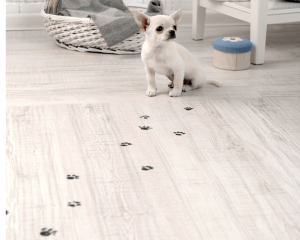
Let’s be very clear here: “clean” is a relative thing. To some people, “clean” means gleaming hardwoods and pristine, zen-like surroundings free of clutter or indeed, any real evidence of human presence.
If that’s the clean to which you aspire, you’re probably better off just playing catch with your neighbor’s dog. Or buying a life-sized stuffed dog and calling it a day.
In the contest of small dogs vs. big dogs, small dogs do win, but they’re far from perfect. As I write this, I count ten dog toys dragged unceremoniously from their designated toy box and scattered strategically throughout the first floor. A favorite stuffed animal has joined them on the window seat.
And me? I’m incredibly relieved Elle Decor declared the age of karate chop pillows “has to end,” because apparently the dogs agree. Every time I straighten a pillow or strategically arrange a throw, cue the wrecking Havanese: one hops on top of the pillow to settle in for a nap while the other plays tug with the blanket, attempting to dislodge both the throw and her sister from her perch. Invariably, all end up on the floor.
Neat? Or Clean?
Clearly, small dogs are not neater than large dogs. And, in fact, they may be somewhat more prone to strewing clutter. We should look into that. But they are infinitely easier if you enjoy a clean house. Why? They’re a snap to bathe, they shed a mere fraction of the hair their larger counterparts produce, they track in much less debris (and are much easier to wipe down), they rarely drool, they don’t make dirt-collecting gouges in the hardwoods, they don’t step in their water bowls, and they don’t grime up the woodwork by smacking their food bowls against the wall as they eat. As I write this, I feel terrible guilt for listing what always drove me crazy about my beautiful golden retrievers. Yet, that guilt is met with admitted relief for the greater work-to-joy ratio my small dog pack gives us.
They’re all the fun and half the work. Small dogs are cleaner and easier to live with.
4. Small Dogs May Be Better For Allergies
 When it comes to the question of hypoallergenic small dogs, it’s important to know one thing. Puppy mill marketing to the contrary, no dog is “hypoallergenic.” People generally aren’t allergic to dog hair. It’s the dog’s flaking skin (otherwise known as “dander) creating most of the problem, and all dogs have skin. In addition, recent research reveals that dog saliva triggers many people allergic to dogs. For more detailed information, check out this great allergy guide from The Ohio State University College of Veterinary Medicine. In spite of many breeders touting poodle crosses as “non-shedding” and thus “hypoallergenic,” skin and saliva bother most dog allergy sufferers.
When it comes to the question of hypoallergenic small dogs, it’s important to know one thing. Puppy mill marketing to the contrary, no dog is “hypoallergenic.” People generally aren’t allergic to dog hair. It’s the dog’s flaking skin (otherwise known as “dander) creating most of the problem, and all dogs have skin. In addition, recent research reveals that dog saliva triggers many people allergic to dogs. For more detailed information, check out this great allergy guide from The Ohio State University College of Veterinary Medicine. In spite of many breeders touting poodle crosses as “non-shedding” and thus “hypoallergenic,” skin and saliva bother most dog allergy sufferers.
Is it the hair? Or the skin? Or both…
Even though dog hair isn’t the direct problem causing allergies, the amount of that hair spreads allergens, because the hair carries the dander and saliva. Then, the hair left behind on our floors and furniture spreads throughout the house. With large dogs, that hair, skin, and saliva can be prolific. In addition, that hair will also carry pollen in from the outdoors, and large dogs have more surface area and more hair for that pollen to hitch a ride on.
For allergy sufferers, small dogs have the advantage
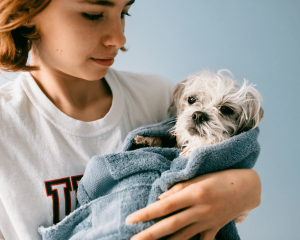 So clearly, for people with allergies, small dogs have less adverse health impact. Small dogs who don’t shed are even better, because they won’t be leaving their pollen and dust-laden fur all over our homes. That’s especially true if we’re diligent about using earth-friendly towels to wipe them down quickly at the door and giving them weekly baths. (Interested in our easy grooming tips? Read more at Small Dog Grooming Made Easy: Do These Three Things)
So clearly, for people with allergies, small dogs have less adverse health impact. Small dogs who don’t shed are even better, because they won’t be leaving their pollen and dust-laden fur all over our homes. That’s especially true if we’re diligent about using earth-friendly towels to wipe them down quickly at the door and giving them weekly baths. (Interested in our easy grooming tips? Read more at Small Dog Grooming Made Easy: Do These Three Things)
And for dogs under fifteen pounds, a bath is a snap – you can place them in the kitchen sink and be done in ten minutes, no bending down or wrestling required. The bonus? Your bathroom won’t look like an indoor waterpark and you won’t be cleaning it. At least not because you had to give the dog a bath. The verdict in this round of big dog vs. small dog? It’s small dogs with the win.
5. Small Dogs Are Green(er)
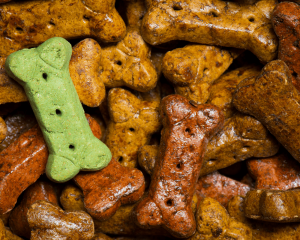
When it comes to dogs and the environment, I struggled with whether to list this particular benefit. Unless you’re living off the land and the grid, nearly every human action has a negative environmental impact. And, we tend to judge one another based on our lifestyle choices when it comes to spreading blame for climate change. Electric car drivers fault SUV owners, who fault people who use plastic bottles, who fault those who still use paper towels and napkins, who fault the vegans with more than two children. Given that dogs in general have recently been targeted for their adverse environmental impact, it’s a bit misleading to say small dogs are more environmentally-friendly.
The ugly truth is that dogs (and cats) contribute to about 30% of the pollution attributed to meat-consumption in America. And, their waste, if not properly disposed of, likewise poses health and environmental dangers to our coasts and waterways. Having said that, a small dog’s environmental paw print is much daintier than his huge relatives in the dog kingdom. The difference is so substantial, that articles about sustainable pet ownership often suggest small dog ownership as a way to lessen our impact. So, once again, the in small dogs vs. big dogs wrestling match, small dogs come out on top.
6. Small Dogs Travel Well
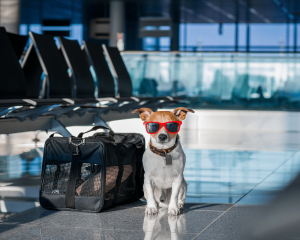
As long-time golden retriever parents, we were, like all big dog owners, practically barred from traveling with our dogs. Because our kids live in San Francisco and LA, and my extended family calls Michigan and Arizona home, most of our vacations consist of jetting from East to West coast or to the Midwest and back again. You really can’t fly your big dogs for casual, week-long vacations, unless you’re into danger and anxiety. And even short weekend getaways become problematic when decent hotels impose size limits on pets. So, big dogs usually get stuck at home with a sitter or sent to a kennel.
When Do We Leave?
Small dogs, on the other hand, are good to go! While you’ll incur airline charges for the privilege of letting your pup sleep under their seats, and you’ll lose out on the convenience of carry-on luggage (because that’s what they count your pup), those sacrifices are trivial. There’s nothing like bringing your entire family with you.
We were so nervous for our first major trip out West with both our Havanese, but they behaved as though they traveled like this every weekend. They were wonderful in the airport and plane. When we landed, they trotted through the airport like authoritative police dogs. In a matter of hours at the resort, they owned the place. Dozens and dozens and dozens of people stopped us to say hello–not to us, but to the pups. We think Phoebe and Scout single-handedly lowered the anxiety of hundreds of people throughout Boston and Phoenix. And they just made our vacation days more fun and our nights more relaxing.
Are you still wondering about a big dog vs. small dog? Really?
7. Small Dogs Are Less Expense (Unless You Spoil Them, But That’s On You)

If you’ve read that small dogs cost more to raise than large dogs, it’s likely because that writer is counting the extra years small dogs live. And, although exceptions exist (Frenchies live only 8-10 years), most small dogs outlive their larger counterparts by a good 3-5 years. So, if you’re looking at cost over the dog’s lifetime, a small dog does cost more. However, if you’re looking at the cost over a dog owner’s lifetime, then large dogs are hands-down more expensive.
Why? Small dogs eat a fraction of the food large dogs eat, and that tends to be the biggest expense. Moreover, if you believe in raw feeding (we do, to a point), it’s actually possible to afford an all raw diet even with two small dogs. With a large dog, the cost quickly becomes crushing, not to mention bad for the environment (see above).
Annual vs. Lifetime Costs
So, while small dogs may cost more to own over their lifetimes, that’s a good thing, as it accounts for their longer time to spend with us. On an annual basis, though, small dogs cost roughly $1,000 a year, whereas large dog owners spend closer to $1440 annually. Full disclosure though: if you own a small dog breed who needs grooming, and you don’t learn to do it yourself, you’ll spend on haircuts that can quickly set you back as much as your own salon appointments. But, they’re worth it. So, in the small dogs vs. big dog contest, when money is at stake, small dogs win again…probably.
8. Small Dogs Multiply Easily
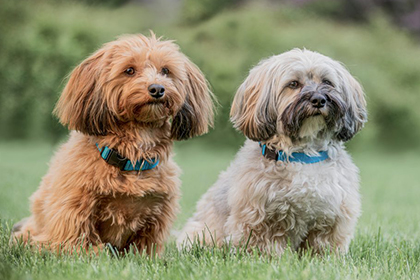
OK, so more full disclosure: you can erase any savings of small dogs over big dogs if you get hooked on them. Every small dog owner learns, very quickly, that tiny canines “are like potato chips,” in that it’s very hard to have just one.
Yes, yes I know—you’re thinking “how is that a good thing?” Here’s why: it’s ridiculously easy to have two small dogs. While they’re twice the work as one small dog, two small dogs are nevertheless still less work and time and hair than one large dog. And, two small dogs bring four times the joy.
Why are two dogs a good thing? Well, they’re an instant pack. Unless you’re home all day, keeping your furry family member company, your dog is going to be lonely and bored. Having a buddy alleviates much of that problem, providing companionship when you’re away. And for you, two small dogs is just a whole lot more entertaining. Who needs National Geographic television when your two pups (who take themselves very seriously) rear up on hind legs and wrestle each other like male elk during rutting season, or when they zoom around the house a million miles an hour. Two dogs are just more fun.
9. Small Dogs Live Longer
As we said before, small dogs generally live long lives. And in all honesty, that’s why our family very reluctantly made the move from beautiful golden retrievers to the pipsqueaks we have now.
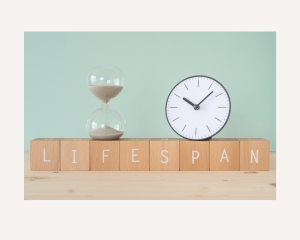 We just couldn’t watch another one of our family members die of the cancers that plague so many large breeds. Over the course of fifteen years, we lost three dogs to fast-moving cancers. And two of our goldens died of the same aggressive, nearly untreatable cancer—hemangiosarcoma. The first lost was Maddie. We had adopted her, our first golden, from a family who rejected her after two years because she had a hip issue. Maddie was a love whose only fault was very occasionally sneaking through three backyards to visit an elderly neighbor who she must have sensed needed company. When she began slowing down at only ten years old, we took her in for testing.
We just couldn’t watch another one of our family members die of the cancers that plague so many large breeds. Over the course of fifteen years, we lost three dogs to fast-moving cancers. And two of our goldens died of the same aggressive, nearly untreatable cancer—hemangiosarcoma. The first lost was Maddie. We had adopted her, our first golden, from a family who rejected her after two years because she had a hip issue. Maddie was a love whose only fault was very occasionally sneaking through three backyards to visit an elderly neighbor who she must have sensed needed company. When she began slowing down at only ten years old, we took her in for testing.
Losing Them Too Soon
It wasn’t good. She was diagnosed with hemangiosarcoma of the spleen. We fought this enemy with both conventional and holistic Eastern medicine, neither of which did any good. Maddie died within months of the diagnosis. Our next goldens we co-owned with the breeder, an incredibly knowledgeable woman who followed the cancer issue closely. She (and we) were committed to ridding the dogs’ environment of any carcinogens. We researched and fed a raw diet to both of them from puppyhood. It did no good. Haly died of a highly unusual mast cell tumor at eight years old. Her beautiful son Romeo died at eight as well, from a hemangiosarcoma that arose in the heart. The silent tumor in his heart suddenly ruptured one night, and our hearts were broken.
After experiencing the crushing early loss of three wonderful creatures, we wanted dogs who could be companions for more than a decade. So, small dogs with long life expectancies were where we turned. When it comes to big dog vs. small dog lifespans, the comparison isn’t even close. While obviously life isn’t guaranteed, at least our smallest family members have a fighting chance to be with us a long time.
10. Small Dogs Are Better For Aging Population

And, while we’re on the subject of long lives, let’s talk about one of the last best things about small dogs. From a purely physical standpoint, small dogs are so much easier on one’s aging body. Even a well-trained large dog needs help into the car or has to be handled in the bathtub or lifted in case of emergency. When Romeo, our last golden retriever, collapsed one night near midnight, we were lucky my daughter happened to be visiting. It took three of us to fashion a stretcher and gather his unconscious weight into the back seat for the rush to the vet. If my husband and I had been alone, we’d have lost precious time struggling to load Romeo in the car. And a single person, no matter the age, probably couldn’t have lifted his 75 pound frame at all.
Small dogs, on the other hand, are portable and simply easier to control, even if untrained. They don’t strain the back, they don’t yank your shoulder socket to lunge at errant squirrels, and they don’t require much effort to wash in the sink. The only major danger is that they do pose a tripping hazard—sometimes, you don’t see them underfoot. But that’s nothing a little training can’t cure.
You’ll Also Love
Leave a Reply
Your email address will not be published.

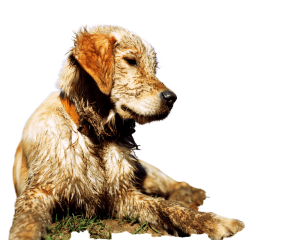
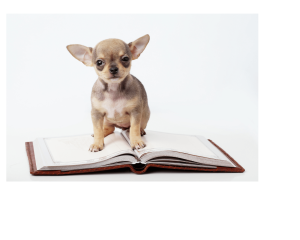

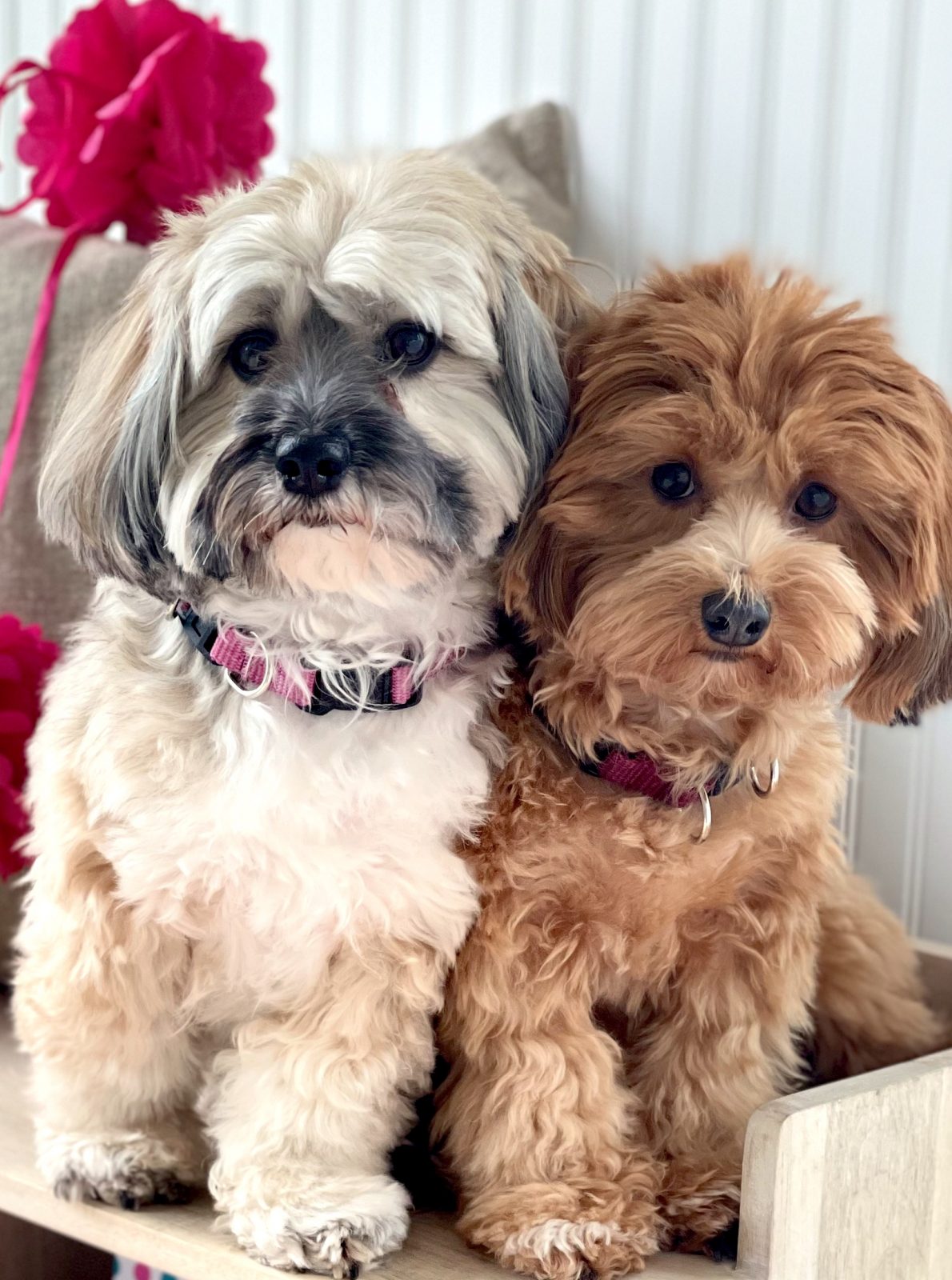


Loved this. We have two havanese now snd have lost one three years ago. They are truly the best dogs ever. I have only been without a canine companion for four of my 69 years. We have had hienz 57 dogs, poodles, cocker spaniels and collies Our little havanese are just the best!!
Hi Deb:
So happy to meet a fellow Havanese fan! We’ve had mostly big dogs all our lives and cannot believe it took us this long to discover (1) small dogs are amazing and (2) Havanese ARE the best. And thank you for taking time to reach out. Sometimes writing in cyberspace feels a bit disconnected, so I appreciate the conversation :).